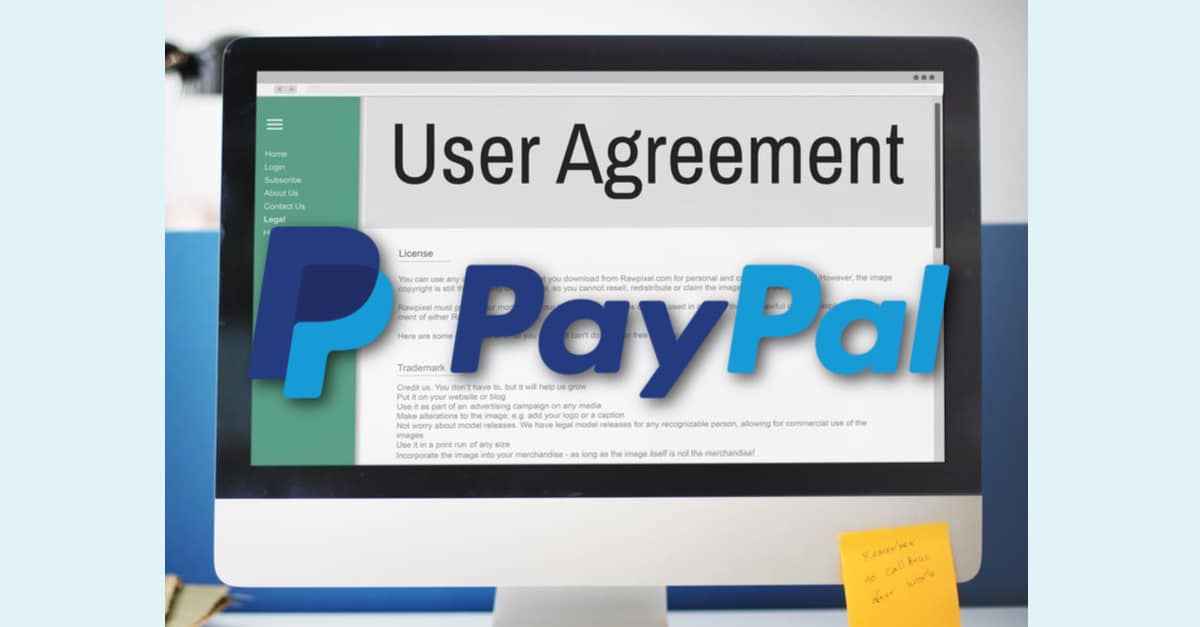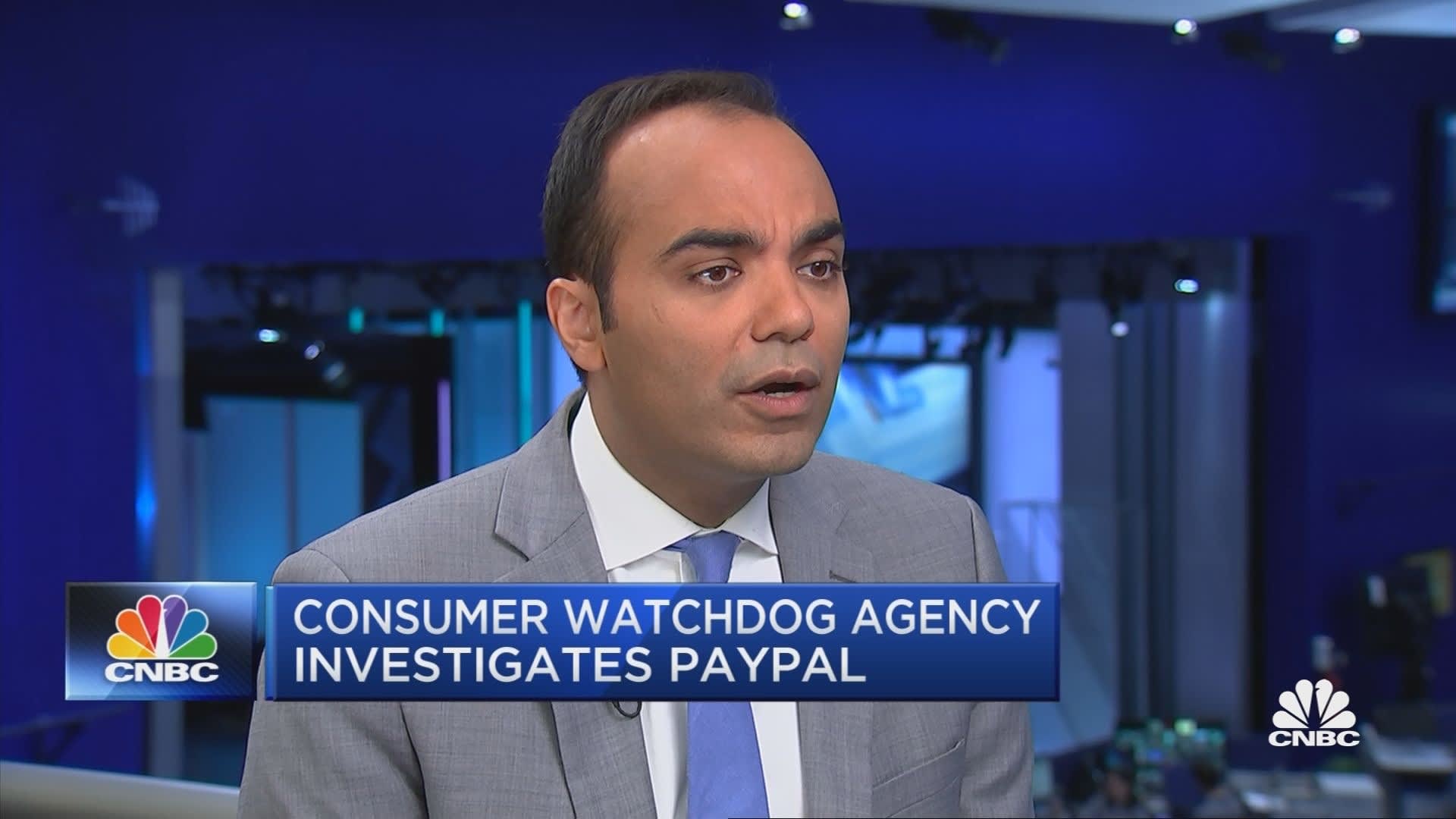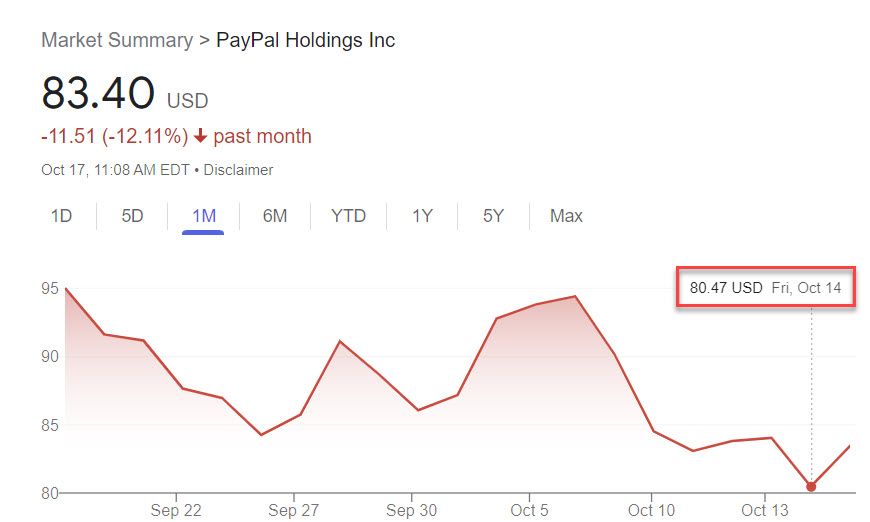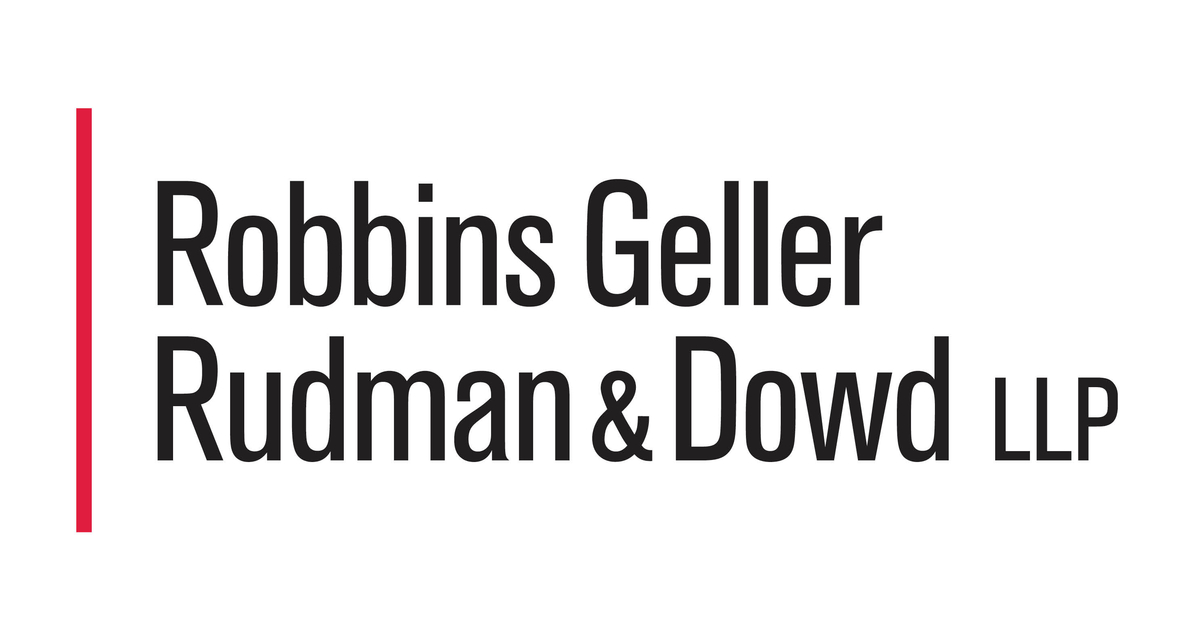Could PayPal Face Legal, Regulatory Issues After AUP Debacle?
UPDATE 10-19-22
House Energy and Commerce Committee Republican Leader Rep. Cathy McMorris Rodgers, R-Wash., Rep. Patrick McHenry, R-N.C., of the House Financial Services Committee, and House Oversight members Rep. Morgan Griffith, R-Va., and Tom Emmer, R-Minn. have taken the lead on this issue with a letter to PayPal CEO Dan Schulman requesting a briefing with additional details about the incident.
As a leading financial technology company, it is concerning that a user agreement that contemplates the restriction of free speech was uploaded and disseminated to PayPal users – even if in error.
We understand your company is currently investigating this matter. Upon the conclusion of your investigation, we request that you provide a briefing for the Committees as soon as practicable.
In addition, to assist the Committees in better understanding PayPal’s processes for changing its AUP, please provide written answers to the following questions:
- Where and with whom did the text of the October 8, 2022 AUP originate?
- What is PayPal’s approval process for changes made to the AUP? Are there PayPal guidelines that document this process? If so, please share the guidelines related to the AUP.
- a. Who is authorized to make the changes?
- Did the text that was updated October 8, 2022 go through the typical approval process?
- Were the changes made to the AUP on October 8, 2022 ever contemplated within PayPal?
- How and at what frequency is the AUP updated?
- Were any entities affected by the updated AUP issued October 8, 2022? If so, please list these entities.
- What are your internal control policies for making changes to PayPal’s AUP?
- What is the notice requirement given to PayPal customers for an updated AUP?
- Is there any indication an external party updated the AUP? If not, how do you know?
- Are third-party contractors held to same internal protocols and standards as PayPal employees?
- With respect to violations of the AUP, is a fined individual notified with specificity?
- Is there an appeals process for violations of the AUP? If so, what is it?
- In the briefing you provided to the Committees, you indicated that the company was handling the investigation internally. Can you please provide the process for that investigation?
- What is the timeline of your investigation?
- Have any PayPal employees met with the Executive Branch regarding disinformation initiatives?
- a. If so, please name the employees, their affiliations, and the dates of the meetings.
PayPal faces continued public backlash even after rescinding an update to their Acceptable Use Policy that would have expanded the existing list of prohibited activities to include the sending, posting, or publication of messages, content, or materials that PayPal deemed to be harmful, objectionable or "misinformation".

But beyond the court of public opinion, could PayPal also face legal or regulatory consequences as a result of this attempted overreach?
CNBC reports Consumer Financial Protection Bureau Director Rohit Chopra is keeping an eye on the situation.

An update to a policy for PayPal users said those promoting misinformation could be subject to damages of $2,500 dollars drew sharp criticism last weekend - and the company’s stock price tumbled at the start of the week.
Then, a PayPal spokesperson said that the notice “went out in error” and included “incorrect information,” adding “PayPal is not fining people for misinformation.”
That hasn’t stopped the head of the federal government’s top consumer watchdog agency from keeping a close eye on these developments and looking into how major financial technology firms dictate how consumers engage with their platform, what constitutes a violation, and what the repercussions, including damages or fines, will be.
In the short interview, Chopra said:
I've never actually heard of a payment system thinking they can fine someone for legal expression that their users are making. Who gets the power to decide who can go in and grab money out of your bank account as a fine? I think that raises some serious questions about the amount of power that some of these companies have when it comes to dictating the terms of commerce...this really is new territory and we are going to look into it.
PayPal has since removed all traces of the updated policy from their site, but the original PDF can be found here:
PayPal's stock price took a tumble last week, with some speculating the backlash against the new policy and rash of account closures it spurred could be a significant factor.

Activist investor Elliott Management took a reported ~$2 Billion stake in PayPal back in July and has been using that position to push for cost cutting measures - I wonder what they think of the proposed policy updates and resulting PR debacle that ensued?
For those who don't remember, Elliott took a stake in eBay back in 2019 and sent a very public letter to the board outlining what they believed needed to be done to "improve operational execution." Immense pressure was put on the board and c-suite to make changes as a result.

Elliott sold their stake in eBay in 2021, but it still stands as a very public example of how they operate to push for change - could the PayPal board and CEO Dan Schulman receive a similar letter soon?
Meanwhile some PayPal users report experiencing roadblocks when trying to close their accounts in protest of the attempted changes to the Acceptable Use Policy - either receiving generic "technical error" messages when attempting to close their account or being told it can't be closed because there are open transactions when there aren't.
@Paypal won't let me close my account, claiming, there are open transactions. This is not true! Well, I just ignore them, as they ignore me. I just don't use them anymore. #DeletePayPal @ValueAddedRS
— Passport-Reisepass (@passporthistory) October 13, 2022
There are also unconfirmed reports that PayPal has been offering some customers attempting to close their accounts a $15 voucher in an attempt to convince them to stay.
PayPal is so desperate now that they are giving $15 to people to not close their accounts.
— PeterSweden (@PeterSweden7) October 13, 2022
Keep on deleting PayPal👍
LMAOOOOO pic.twitter.com/lR5rmyFo5g
— The Redheaded libertarian (@TRHLofficial) October 13, 2022
I've reached out to PayPal to try to confirm the messages being shared on social media and will update once I have more information. If it is true, this could put PayPal in an even tougher spot legally and with shareholders.
PayPal is currently facing a possible class action lawsuit being brought by investors who allege they experienced substantial losses due to a campaign in which PayPal offered a $10 signup incentive to new accountholders that drove many new accounts to be created fraudulently or with no intent to actively use them just to get the $10 credit, causing a huge over reporting of "active accounts" that later had to be restated - resulting in a drop in stock price.

CASE ALLEGATIONS: The PayPal class action lawsuit alleges that PayPal throughout the Class Period touted the growth in its Net New Active Accounts (“NNAs”) and instructed investors to value the high growth in this metric as one of the most important indicators of how PayPal was performing.
But as the PayPal class action lawsuit alleges, while touting its NNA growth, PayPal failed to disclose that many of the additional users acquired through its cash account creation incentive campaigns were illusory because those incentive campaigns were easily susceptible to fraud.
Specifically, PayPal failed to disclose that its cash incentive campaigns significantly increased PayPal’s susceptibility to bot farms that were able to systematically take advantage of PayPal’s $10.00 account opening by creating millions of illegitimate accounts, which ultimately generated no future revenue for PayPal.
In addition, the PayPal class action lawsuit alleges that investors were unaware of the lengths PayPal was going to keep inactive customers and fake bot accounts on the platform to prevent churn and inflate its NNA guidance which would have provided a more realistic view of the true demand for PayPal’s platform.
On February 1, 2022, PayPal revealed that its NNAs were only 49 million for 2021, less than the guidance of 50 million it initially provided in February 2021. In doing so, PayPal admitted that “in connection with the increased use of [cash] incentive campaigns throughout 2021, [PayPal] identified 4.5 million accounts that [PayPal] believe[s] were illegitimately created,” and that as a result PayPal changed course on some of its customer acquisition strategies including incentive-led campaigns in the fourth quarter.
Further, because PayPal was evolving its customer acquisition and engagement strategy, PayPal now expected only 15-20 million net new customer accounts for 2022 and that PayPal “no longer believe[s] that the 750 million medium-term account aspiration [PayPal] set last year is appropriate.” On this news, PayPal’s stock price fell by approximately 25%, damaging investors.
If PayPal is in fact passing out $15 vouchers in response to the Acceptable Use Policy update account closures, one has to wonder how many people may take the money and simply close accounts at a later date or just allow them to go dormant.
In that scenario, using vouchers to try to prop up the "active account" numbers could be seen as similar to the previous attempt to bump up net new active accounts that is now receiving scrutiny.
If that class action lawsuit is successful, could it open PayPal up to more exposure for how they've handled trying to stem the mass exodus of users due to this policy update as well?
What do you think of PayPal's response to the backlash about updates to their Acceptable Use Policy? Let us know in the comments below!





 javlui
javlui












